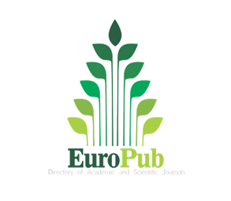The hydronyms of the Labau, Lämäδ and similar isoglosses in the Ural-Altaic and other languages
Views: 214 / PDF downloads: 131
DOI:
https://doi.org/10.32523/2664-5157-2021-3-55-64Keywords:
hydronyms, Turkic languages, Ural-Altaic languages, Nostratics, Euroasiatic macrofamily, broad areals, prehistoric times of originAbstract
The article is a study of the origin of Bashkir hydronyms with anlaut L-, (Labau,
Lämäz, and a number of others). Against the background of extensive comparisons of similar hydronyms and appellatives from the Turkic, Altaic, and other Eurasian languages. The author
considers several versions of the said hydronyms viz possible origin from the Turkic, Altaic, Uralic
or Euroasiatic languages at large. The stem and/or root of Bashkir hydronyms of the Lämäz type
may be cognate with such hydronims as Laba in Poland > the Elbe in East Germany, -lej ‘a small
river’ in the Volga Finnie languages and with a fair number of similar names of water objects in
Europe, Asia and beyond. So, convergence with many of the same-root names of water bodies from
several dozen languages and/or dialects is proposed. A large amount of material from the dialects
and subdialects of the Bashkir language is involved. A conclusion is proposed about the very great
antiquity of the hydronymy containing the anlaut L- in the bases of the LVC phonomorphological type.
The answer to the question posed in the article’s title can hardly be definitive, as much further
research is needed to clarify many points.
Downloads
Reference
Slovar’ toponimov Respubliki Bashkortostan [Dictionary of toponyms of the Republic of Bashkortostan]. Ufa, Kitap, 2002. 256 p. [in Russian].
Russko-bashkirskiy slovar’ nazvaniy vodnykh ob»yektov Respubliki Bashkortostan [Russian-Bashkir dictionary of names of water bodies of the Republic of Bashkortostan]. Ufa, Kitap, 2005. 116 p. [in Russian].
Ishbulatov N. Kh. Bashkort dialektologijaһy. [Bashkir dialectology] I. Ufa, BDU nashriate, 1979. 88 p. [in Bashkir].
Ishbulatov N. Kh. Bashkort tele һam unyn dialekttary. [Bashkir language and its dialects]. Ufa, Kitap, 2000. 212 p. [in Bashkir].
Gordeev F.I. Istoricheskoe razvitie leksiki marijskogo jazyka. [Historical development of the vocabulary of the Mari language. Historical development of the vocabulary of the Mari language]. Pod red. I.S. Galkina [Edited by I.S. Galkin]. Joshkar-Ola, Marijskoe kn. izd-vo, 1985. 144 p. [in Russian].
Rozen M.F., Maloletko A.M. Geograficheskie terminy zapadnoj Sibiri. [Geographical terms of Western Siberia]. Tjumen, 1970. 101 p. [in Russian].
Murzajev E.M. Geografia v nazvanijax [Geography in titles]. Moscow, Nauka, 1982. Second ed. 176 p. [in Russian].
Murzaev E.M. Slovar’ narodnykh geograficheskikh terminov [Dictionary of folk geographic terms]. Moscow, Mysl, 1984. 653 p. [in Russian].
Slovar’ geograficheskih nazvanij SSSR [Dictionary of geographical names of the USSR]. Pod red. M.B. Volostnovoj; Glav. upr. geodezii i kartografii pri Sovete Ministrov SSSR. Centr. nauch.-issled. in-t geodezii, ajerosemki i kartografii [Edited by M.B. Volostnova; General Manager of Geodesy and Cartography under the Council of Ministers of the USSR. Central Research Institute of Geodesy, Aerial Survey and Cartography.]. Moscow, Nedra, 1968. 272 p. [in Russian].
Murzaev E.M., Murzaeva V.G. Slovar’ mestnykh geograficheskikh terminov [Dictionary of local geographic terms]. Moscow, Geografgiz, 1959. 304 p. [in Russian].
Matveev A.K. Geograficheskie nazvanija Urala: Kratkij toponimicheskij slovar’.[Geographical names of the Urals: A Brief Toponymic Dictionary] Izd. 2-e, pererabot. i dopoln. Sverdlovsk: Sred. Ural. kn. izd-vo [Publ. 2nd, recycl. and suppl. - Sverdlovsk: Mid-Ural Book Publishing House]. 1987. 208 p. [in Russian].
Dolgopolskij A.B. Gipoteza drevnejshego rodstva jazykovyh semej Severnoj Evrazii s verojatnostnoj tochki zrenija [Hypothesis of the most ancient kinship of language families in Northern Eurasia from a probabilistic point of view]. In: Voprosy jazykoznanija [Questions of linguistics]. 1964, No 2. P. 53–63. [in Russian].
Illich-Svitych V.M. Opyt sravnenija nostraticheskih jazykov. T. 1. Vvedenie. Sravnitel’nyj slovar’ (b–Ḳ) [An experience of comparing Nostratic languages. T. 1. Introduction. Comparative Dictionary]. Pod redakciej i s vstupitel’noj stat’ej V.A. Dybo [Edited and with an introductory article by V.A. Dybo]. Moscow: Nauka, 1971. 412 p. [in Russian].
Illich-Svitych V.M. Opyt sravnenija nostraticheskih jazykov. T. 2. Sravnitel’nyj slovar’. Ukazateli [An experience of comparing Nostratic languages. T. 2. Comparative Dictionary]. Pod red. V A. Dybo [Edited by V.A. Dybo]. Moscow: Nauka, 1976. 156 p. [in Russian].
Illich-Svitych V.M. Sootvetstvija smychnyh v nostraticheskih jazykah [Correspondences of stopping in Nostratic languages]. In: Jetimologija [Etymology]. Moscow, 1968. P. 304–355. [in Russian].
Drevnetjurkskij slovar’ [Ancient Turkic dictionary]. red. V.M. Nadeljaev i dr [Edited by V.M. Nadelyaev and others]. Leningrad, Nauka, Leningr. otd-nie, 1969. 676 p. [in Russian].
Blažek V. Lexica nostratica Addenda et Corrigenda II Archiv Orientalni 58/3. 1990. P. 205–218.
Dolgopolsky A. A Nostratic dictionary. Cambridge, 2008.
An introductory grammar of the Pāḷi language. Prepared by Allan R. Bomhard. Charleston, S.C.: Charleston Buddhist Fellowship, 2012. 131 p.
Bouda K. Verwandschaftsverhätnisse des Gilyakischen. In: Anthropos. D.10. 1960.
Greenberg Joseph H. Indo-European and its closest relatives: The Eurasiatic language family. I: Grammar Stanford UP, 2000. 344 p.
Kavkazskie jazyki. [Caucasian languages]. Red. M. E. Alekseev, G. A. Klimov, S. A. Starostin, Ja. G. Testelec. Moscow, Academia, 2001. 480 p. [in Russian].
Dulzon A.P. O drevnej central’no-aziatskoj jazykovoj obshhnosti [About the ancient Central Asian linguistic community]. Tr. Toms. U, 1968. Vol. 197. P. 177–191. [in Russian].
John D. Bengtson. Iarl and Iormun-; Arya- and Aryaman- : A Study in Indo-European Comparative Mythology.. Comparative Mythology 2.1. 2016. P. 33–67.
Blažek Vaclav, John D. Bengtson. Lexica Dene-Caucasica. Central Asiatic Journal 39.1 11–50. 1995. (Additions and corrections in CAJ 39. 2. 161–164).
Jahontov S. V zashhitu austro-tajskoj gipotezy [In defense of the Austro-Thai hypothesis]. In: Nostraticheskie jazyki i nostraticheskoe jazykoznanie. Tezisy dokladov [Nostratic languages and Nostratic linguistics. Abstracts of reports]. Moscow, 1972. P. 50–51. [in Russian].
Greenberg J.H., Ruhlen M. Amerind etymological dictionary. Stanford SUP, 2007.
Starostin S.A. Nostratic and Sino-Caucasian. In: Lingvisticheskie rekonstrukcija I drevnjaja istorija vostoka. [Linguistic reconstruction and ancient history of the East] Part. IV. Moscow, 1989. P. 115–130.
Peyros I.I. O sootnesenii arkheologii i lingvistiki pri izuchenii proizvodyashchego khozyaystva [On the correlation of archeology and linguistics in the study of the production economy]. In: Vestnik drevney istorii [Bulletin of Ancient History]. 1989, No. 1. P. 126-128. [in Russian].
Nicolaev S., Mudrak O. Gilyak and Chukchi-Kamchatkan as Almosan-Keresiouan languages lexical Evidence. Bochum, 1989. P. 67-89.
Shevoroshkin V. Methods in Interphyletic Comparisons. Ural-Altaische Jahrbücher 61. 1989. P. 1–26.
Dialektologicheskij slovar’ bashkirskogo jazyka. [Dialectological dictionary of the Bashkir language]. Ufa, Kitap, 2002. 430 p. [in Russian].
Murzaev E.M. Ocherki toponimiki [Essays on toponymy]. In: AN SSSR In-t geografii [Academy of Sciences of the USSR Institute of Geography]. Moscow, Mysl’, 1974. 382 p. [in Russian].
Khisamitdinova F.G., Sirazitdinov Z.A., Shakurov R.Z. i dr. Slovar’ vodnyh obektov Respubliki Bashkortostan [Dictionary of water bodies of the Republic of Bashkortostan]. Ufa, Kitap, 2000. [in Russian].
Starostin S., Dybo A., Mudrak O. Etymological Dictionary of the Altaic Languages. Leiden, Brill, 2003. 2096 p.
Shevoroshkin V. Nostratic and Sino-Caucasion. In: From Neanderthal to Easter Island. A tribute to, and a celebration of, the work of W. Wilfried Schumacher. Presented on his 60-th Birthday. Edited by N. Kirk and P. Sidwell. Canberra, 1999.
Downloads
Published
How to Cite
Issue
Section
License
Copyright (c) 2021 Turkic Studies Journals

This work is licensed under a Creative Commons Attribution-NonCommercial 4.0 International License.
























